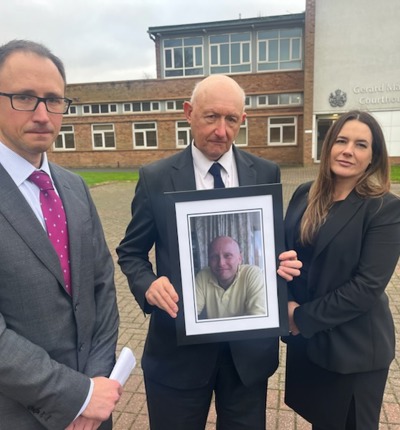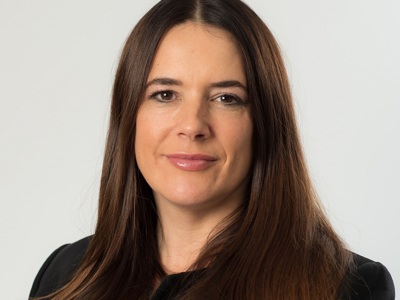
Dan Kay, 45, took his own life on day he should have seen Merseycare mental health team
Former Liverpool Echo journalist Dan Kay took his own life on the day a Merseycare mental health appointment was cancelled, the inquest into his death was told.
Posted on 07 November 2024
Coroner Joseph Hart gave a conclusion of suicide after listening to evidence of what happened to Dan, aged 45, in the weeks before his death.

Pictured: Dan Kay
He agreed that the Article 2 (the right to life) obligation under European Convention on Human Rights was engaged on the basis that there was an arguable breach of the state’s duty to protect Dan’s life.
The three-day inquest at Gerard Majella Courthouse in Liverpool heard that Dan, who had suffered poor mental health for many years, had tried to take his own life twice in three days on 28 April and 1 May 2023, and then was discharged from hospital on 2 May to be visited daily by Merseycare mental health team.
But mistakes and communication errors led to a two-day lapse in visits to see him on 6 and 7 May. On 7 May 2023, Dan took his own life and his body was found near to Mossley Hill train station.
The coroner said the failure to properly consider the impact of the cancellation of a visit by mental health professionals on the day Dan died, 7 May 2023, was a missed opportunity with a possible contribution to the ultimate outcome.
The absence of formal consideration for the support Dan needed following his discharge from hospital following earlier attempts to take his own life on 28 April and 1 May also possibly contributed to his death, said the coroner.
In making his decision about the engagement of Article 2, the coroner considered the short period of seven days following Dan’s significant suicide attempt when he attended at hospital. He considered on the evidence that Dan was particularly vulnerable and the discharge home to the Crisis Resolution Home Treatment Team was on the basis that he would be visited every day.
Dan’s family are represented by Leigh Day human rights team partner Leanne Devine.

Pictured: Leanne Devine (right) with Dan Kay's family: cousin Amos Waldman (left) and uncle Dr Steven Waldman (centre)
Her client Amos Waldman, Dan’s cousin, described him to the court, saying he was warm, charismatic, engaging and thoughtful, “the most kind, generous and giving person I know".
The court heard that 20 years ago Dan had made attempts to take his own life, but had since spoken publicly about his relief that his attempts had been unsuccessful. In the months before his death, difficulties with an adopted rescue dog, which had to be put down, and notice of redundancy from his employment had contributed to a severe deterioration in Dan’s mental health.
The coroner said there was then a number of visits and superficially an improvement. He systematically denied any suicidal plans, but with the benefit of hindsight it was clear that Dan was struggling more than was appreciated.
After Dan attempted to take his own life on 28 April and tried again three days later on 1 May his friends became increasingly concerned about his welfare, police attended at his home and Dan was taken by ambulance to the Royal Liverpool Hospital. He was seen by a mental health nurse, the clinical lead at the mental health liaison team run by the Mersey Care NHS Trust.
She told the court that following a mental health assessment it was decided not to admit Dan but to send him home under the care of the Merseycare Crisis Resolution Home Treatment Team. Dan had told her that he did not want to be in hospital. She said she had not sought an assessment under the Mental Health Act because he had capacity.
On 2 May, Dan was discharged and was visited at home on the same day by a Merseycare Home Treatment Practitioner. Dan’s care plan, which was a standard template used by the Team, set out that Dan would have daily visits.
Over 2, 3, and 4 May he was visited by three different practitioners.
After a further visit on 5 May, it was decided by one staff member, acting alone, that visits to Dan would take place every other day, with phone calls every other day. There was no record of a change in his risk. The decision was not discussed at a Multi Disciplinary Team Meeting or with even with other team members.
On 6 May, a Crisis Team member telephoned Dan, who reported feeling up and down.
The court heard that after this phone call there was a discrepancy over when Dan’s next visit should be. The witness' notes stated the visit would be Monday 8 May, but Dan had been told he would have a home visit on Sunday 7 May.
The coroner questioned the witness, saying: "So Dan has been told no one is coming on the Saturday but someone is coming on the Sunday, then out of the blue you tell him no one is coming on the Sunday either?"
The witness said he could not explain the discrepancy and he did not make sure that the documentation aligned which was a “huge mistake” for which he apologised.
He believed Dan may have called the mental health care team to postpone the Sunday 7 May visit, but this hadn’t been noted. He told the coroner that in hindsight, if that had been the case, it should have raised alarm bells.
Giving his conclusion, the coroner said the best evidence he had is that the visit was cancelled by Dan, telling those at mental health services that he was meeting friends. That cancellation was not explored or considered by the mental health team. He said it was unclear whether if it had been considered, anything would have been done about it or whether mental health services could have been put on notice Dan would be out of contact on Sunday and treated the situation accordingly.
A mental health worker, who had expected to visit Dan on Sunday 7 May, said he was “taken aback” to hear that Dan had cancelled the appointment.
He decided to try to telephone Dan between his other appointments on that day. However, after an unanswered call, he was alerted to the incident at Mossley Hill train station and Dan’s friend called the team to say that he was missing.
The mental health team worker’s notes were updated to state that he had made three unanswered calls to Dan.
During the inquest, the coroner made inquiries with Liverpool City Council, about Dan’s ability to access the railway. This led to the immediate removal of street furniture near the railway fence.
Mersey Care NHS Foundation Trust told the Court that various changes have been since made in terms of induction processes, training, use of templates for record keeping, increase of Clinical Leads and processes when patients cancel arranged visits.
The family were disappointed that even at the inquest, Mersey Care NHS Foundation Trust maintained the position that Dan was not at any real and immediate risk of taking his life. The coroner commented in his ruling that there was an obvious real and ongoing risk of suicide to Dan which was abundantly apparent to all those who saw him.
Following the conclusion of the inquest, Dan’s cousin Amos Waldman made a statement. He said:
“For someone who spent his whole life campaigning for social justice it's right and fitting that he got justice himself.
“Dan was sadly troubled with poor mental health for much of his life. He was a much loved member of our family and it was extremely difficult to see and hear how much he suffered.
“His family and friends tried to give Dan as much help and support as we could, and to always encourage him to take the professional support that was offered by NHS mental health teams.
“However, we do feel that in the days before his death that Dan was let down by the team of people that was supposed to be there to give him the care and support he needed.
“It is disappointing that when it was known that Dan had made two recent attempts to take his own life, that the mental health team workers do not appear to have tried harder to be sure that Dan was safe. We don’t know why there was confusion about the 7 May visit, and why Dan went two days without seeing a professional. The failure to have made proper notes about something so crucial is very disappointing to us.
“Through the Dan Kay Foundation we will continue to seek change in Dan’s memory to ensure an improvement to the mental health services in our area.
“We will always remember Dan with love and he will always be in our hearts.”
Leigh Day partner Leanne Devine said:
“It has been a privilege to represent the family of Dan Kay at the inquest into his death. Dan knew the deep love of his family and friends and the absolute respect of his colleagues at the Liverpool Echo. Also, as a result of his journalism, he was held in great esteem by the Hillsborough community of families.
“It is a tragedy that someone who was so loved and respected in his personal and professional life, suffered so badly with poor mental health to the extent that it put his life at risk.
“It is a greater tragedy that errors were made by the team tasked with keeping Dan safe in days of crisis in early May 2023. The severity of the risk to Dan was not reflected in their careful note taking and attention to his safety.
“We welcome the coroner’s conclusion and thank him for the rigorous analysis of the events leading up to Dan’s death and the care Dan received from Merseycare NHS mental health teams. We trust that careful note has been taken of errors that were made so that they are not repeated in the care of others who face similar struggles with their mental health.”




